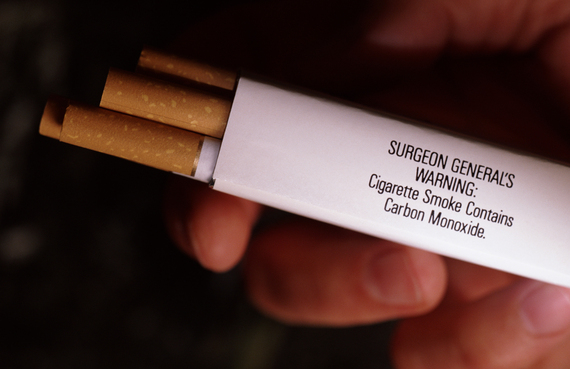A few years ago, I made a documentary on CNBC that focused on tobacco.
The basic premise was to look at how was a business could be growing and making billions of dollars in profits while most people on the planet wanted to get rid of it.
We learned a lot in the year we spent on the topic. One thing we knew going in was just how many decades went by without any substantive questioning of the potential hazards of smoking.
But even as a third of the country puffed away their youth and vitality, the companies themselves knew it was bad. Oh boy, did they know.
This isn't news, but learning the nuances of how the companies operated was fascinating.
One advertising executive, who worked right alongside tobacco companies, shared with me a story about one of the major cigarette companies that hosted a product-release party in the 1970's. He said everyone with the company had a cigarette in their hand. Then, he added, almost none of them lit the cigarette ... the entire night.
The employees didn't want to smoke but had to look like they did.
In the May 22, 1984 edition of the New York Times, there was a front-page story on possible new warnings on cigarettes.
It's amusing.
The tobacco lobby realized that major changes were afoot and no longer fought to keep new warning labels off cigarette boxes. Rather, pro-tobacco politicians tried to minimize the impact.
They argued around the edges, on topics like whether arrows should be allowed on boxes that pointed to the warnings.
The debate was contentious, but a young politician from Tennessee drafted a piece of compromise legislation that looked promising.
His name?
Albert Gore, Jr., a representative from Tennessee. Yes, he had probably already invented the internet but back then, he wasn't even in the Senate.
Gore was 36-years old.
In 1984, cigarettes came with a solitary warning:
"The Surgeon General Has Determined That Cigarette Smoking is Dangerous to Your Health".
The new legislation would rotate a set of warnings.
My favorite:
"Cigarette smoke contains carbon monoxide."
It almost sounds good.
The other warnings were more dire, imposing and intense.
Thirty years later, it's interesting to look at the smoking landscape.
A little more than 30-percent of American adults smoked in 1984. Now, it's under 20-percent.
That's huge progress but way too slow for then Surgeon General C. Everett Koop, who said he wanted the country to be a "smoke-free society by the year 2000."
Ooops.
Smoking will probably go away at some point, and it was admittedly an aggressive short-term goal set by Dr. Koop. But what would he have said if we told him in 1984 that by 2014, electronic cigarettes would be the next big health threat.
He would probably laugh, say "yeah, right" and then ask you to put that fantasy right next to the end of the Cold War and the modern American space program.
